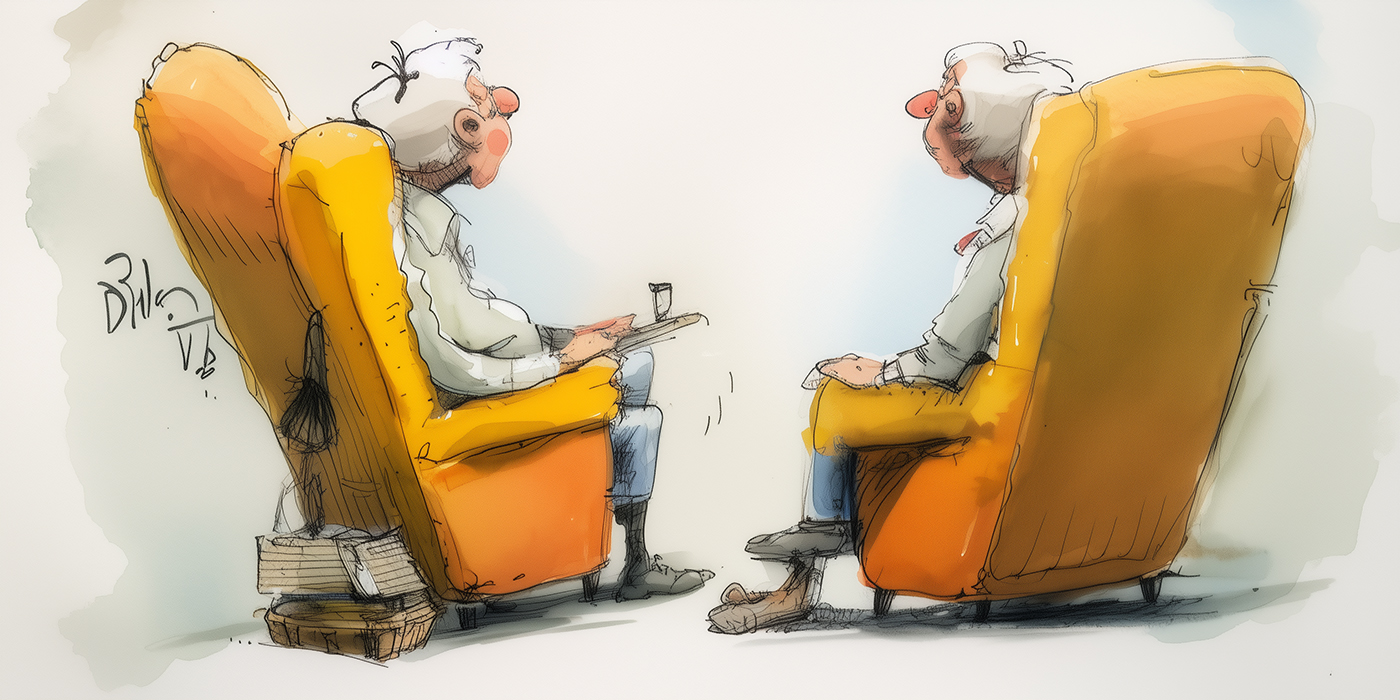1. Evidence from individual recovery. Enough time has elapsed now for us to begin to see some history. Take an actual case history: A man comes into SA in the early Eighties and immediately is “hot SA.” Becomes a mover and shaker in his SA area. After a while, he decides to start some serious research in “committed relationships,” and in his eloquence and fervor (and sexaholic need) actually starts putting doubts in the minds of other members about SA sobriety. After all, he’s brilliant, well educated, and top leadership caliber. He leaves SA and continues his research. Years later, we find he’s quietly back in SA. He tells us he now fully supports SA sobriety. This person has reinvented the wheel. He has “discovered” all by himself what SA discovered in its early history and continues even now to reaffirm: For him, SA sobriety and the fellowship of that sobriety are what he must have for himself, cost what it may to his ego. There are countless SA stories we know of that fit this pattern, and doubtless many we’ll never hear about. Some have left SA to attend or start groups in other sex addiction organizations and have later returned to SA. The solid fact is that some people must have the real SA.
2. Evidence from the history of SA groups. Groups divided on SA sobriety usually wind up dividing. What happens to individual recovery when that happens? It is endangered. We’ve seen this happen time and again. We can list the cities. On the other hand, groups with single-minded leadership, even with some dissenting members in their meetings, function toward sobriety, recovery, and healthy growth.
The fact is that groups often tend to drift along the path of least resistance. New groups, and groups with no solid connection with the spirit of SA and more remote from the center, without committed SA leadership, tend to gravitate toward the prevailing cultural mind-set. Ambiguous leadership leads to ambiguous and divided groups.
3. Evidence from recent SA history. Not specifying requirements for service in accordance with SA principles has produced division, disharmony, and negative results.
4. Evidence from other organizations. As we know, many persons have come to SA from one of the other organizations. One of the current leaders of one of the other fellowships declares SA sobriety is necessary for some people and that SA’s sobriety imperative and literature should be left intact.
I’m thinking of a young man, single, in another country, newcomer to SA, and a rip-roaring sex drunk, who has gone farther in his 25 years than many of us older sexaholics have in a lifetime. I’m thinking of an old-timer in SA who has years of SA sobriety, doesn’t know if his lust will ever change gender preference or not, but who nevertheless knows he must have SA sobriety. These cases can be multiplied hundreds of times over. The leader in the other fellowship is right: Many persons must have SA sobriety for recovery. And it is evident that a great mass of people in SA, as shown in our recent sobriety survey, testify to this.
Here’s food for thought. It appears to me that when one of the other fellowships opens up to SA’s concept of sobriety, it is strengthened. When SA opens up to the other fellowships, however, SA is weakened. SA cannot try to be all things to all people. I believe SA must remain a closed fellowship.
What comes to mind in this connection is the practice in Germany and some groups in the U.S. Before newcomers ever go to a meeting, they are not only told about SA’s sobriety, but are asked what they think about it and what it is they really want.
5. Evidence from the fact that recovery is not singular but mutual.
“Recovery is real because it is a mutual and cooperative effort. The unity of each group is essential.”
A. Philip Parham, Letting God
My own recovery is not singular, it is mutual and cooperative. We are part of the recovery process of one another. Thus it does matter who is leading our group or meeting or speaking at our conventions. It does matter what they want and are achieving or not achieving. I can’t walk alone. For myself, I must have a fellowship where what I must have for me to recover is the common ground we stand upon. I can’t walk on water.
Finally, SA and its sobriety imperative have appeared in history by the grace of God, meeting the need of many who would otherwise remain in a hopeless state of mind and body and for whom nothing else works. Having gone through trial-by-fire, we have emerged united around an incredible proposition, an extraordinary energy; united about a principle that flies in the face of everything about us in today’s world, a principle increasingly lost and alien to the human race—our Sobriety Imperative. This is the Great Fact for us.
Not everyone, but many must have such a fellowship. And by the grace and love of God, if the SA leadership is true to its unique calling, there shall continue to be such a fellowship.
Roy K., 3 July 1991






